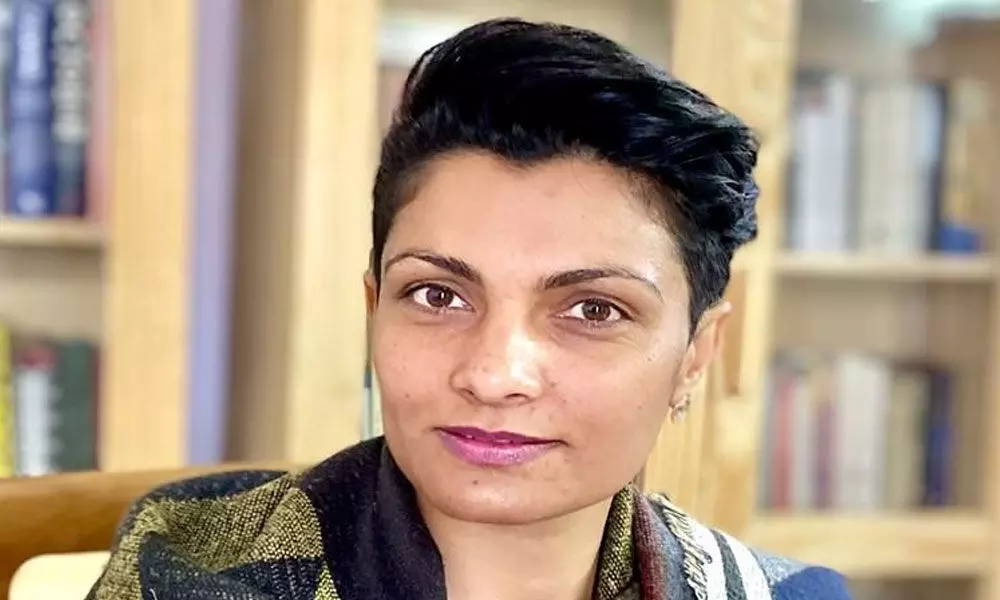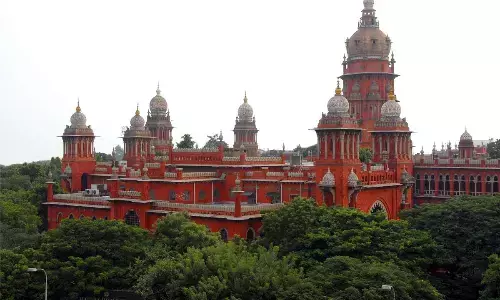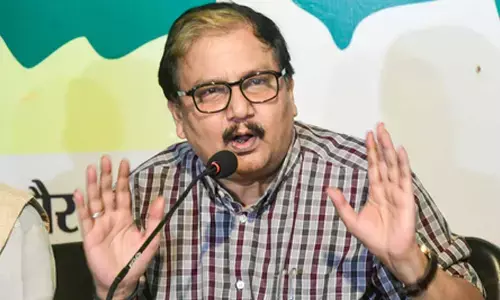Newsletter by all-women team on farmers' agitation launched

Social activist Sangeet Toor
We are trained to look at the ongoing farmers' agitation with a certain gaze that tends to ignore the role of women participating actively and passively
"We are trained to look at the ongoing farmers' agitation with a certain gaze that tends to ignore the role of women participating actively and passively. The same holds true for Dalit labourers who do not own tractors and trolleys, and make a huge effort to be at protest sites. This is where the newsletter 'Karti Dharti' comes in," says social activist Sangeet Toor.
Launched today (February 12), this four page A3 sized newsletter in Punjabi, and later Shahmukhi (Persian) too, founded and edited by Toor, a Master's degree holder in Cyber Security from George Washington University in the US comprises an all women's team. While it has been designed by Navjeet Kaur, funded and distributed by Sargam Toor, another social activist, the rest of the team is in the background. "Considering the crackdown by the government, some other women members have decided to contribute for different roles anonymously. Besides
two protest sites, the newsletter will also be distributed at several morchas in Punjab," Toor tells.
Interestingly, 'Karti Dharti' was conceived when the founder-editor was invited to give a talk (digital) by the Young Lyallpur Historian's Club in West Pakistan. "Talking about the ongoing farmer' agitation, the host asked if there was any newsletter taken out by women. I instantly felt that there was a need for one to bridge gaps on multiple levels."
While the newsletter has been christened 'Karti Dharti' by Nausheen Ali, a Professor at New York University (NYU) in the US, Toor, who is also involved with 'Trolley Times', a newspaper taken out by a team of activists on the borders says that she did initially think about talking to them about the space she would like to explore. "However, considering the fact that I have been writing independently on women and labour issues, I was also looking for more elbow room. Moreover, I wanted this to be a woman led initiative."
Stressing on the role of women in the agitation -- not just those who are on the borders, but also ones back in their villages, the social activist says, "From making foodstuff in huge quantities for protesters to mobilizing other women in villages, they are making an important contribution. We must understand that not every family is schooled to let the women go out and participate in the protest. Many of them who cannot go collaborate with other women are taking out jago in their areas."
Adding that she wanted 'Karti Dharti' to be a print edition and not a digital one owing to the reader base being targetted, Toor says, "You will see most women in Punjab still reading established Punjabi newspapers and not really going in for news distributed through digital or social media platforms."
For her, the life of the newsletter goes beyond the agitation. "We have put a lot of thought and are convinced that the present agrarian crisis goes beyond the three new laws. It is how we have been doing agriculture and the need for several changes. The 'Karti Dharti' space is also going to be used for starting new conversations and involving common people."














